China throws caution to the wind on Covid
Covid-19 has not spread as fast as it is in China right now. At its current rate, more than a billion Chinese citizens may catch the coronavirus by March. It could happen even sooner than that.
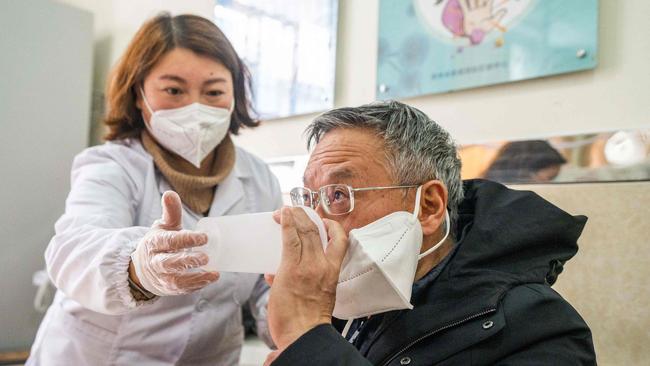
Covid has not spread as fast as it is in China right now. Hundreds of millions of people have been infected in the past three weeks.
At its current rate, more than a billion Chinese may catch the coronavirus by March. It could happen even sooner.
The haste with which Xi Jinping’s “zero Covid” apparatus has been dismantled has stunned even the closest observers of China’s pandemic policy.
Until three weeks ago, people who tested positive for Covid were sent to offsite quarantine centres. A stint was mandatory even for those with only mild symptoms or none at all.
Now Covid-infected employees are being instructed to return to work, unless they have extreme symptoms. Three years after the coronavirus’ initial outbreak, the world’s focus is again fixed on China. Some epidemiologists fear a new variant could emerge and change the course of the pandemic. Others hope the biggest health crisis in 100 years is finally coming to an end.
This week The Australian struggled to speak to anyone in China – of the world’s last “zero Covid” hold out – who had not been infected in December.
“It’s unbelievable. The scale, the speed,” says Huang Yanzhong, a senior fellow for global health at the Council on Foreign Relations and expert on China’s healthcare system.
“Very likely it’s already infected more than 30 per cent of the population,” Professor Huang tells The Australian. This would be more than 400 million people.
For years, he and other medical experts had advised Beijing to let go of its “zero Covid” mentality – but not like this. Only 66 per cent of people over 80 have had two jabs of a vaccine, a damning statistic in a country where supplies have been plentiful for almost two years.
Supplies of Pfizer’s Covid-19 antiviral drug, Paxlovid, are in short supply, due to a mixture of nationalism and protectionism. The life-saving drug, now being sold at exorbitant prices, has become one of the highest status gifts among China’s wealthy elite.
Rather than take measures to flatten the wave as the healthcare system is subsumed with patients, some are urging the infection of the country’s 1.4 billion people. Supporters call the strategy “quickly reaching the peak”.
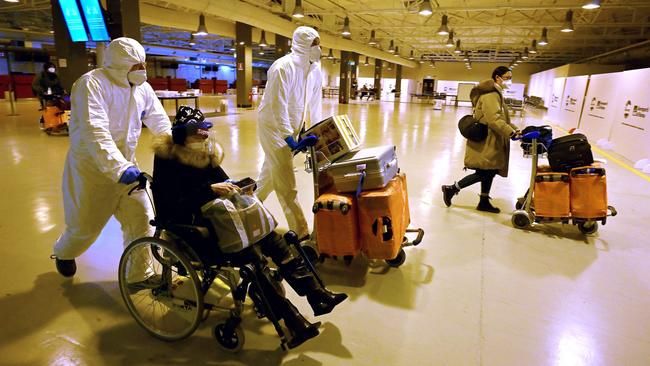
The goal, they argue, is to get through the pain as fast as possible so that economic normality can resume.
Many investment banks see good news on the other side of the outbreak. In recent days Morgan Stanley and Credit Suisse have released bullish forecasts for China’s stockmarket in 2023. The Economist Intelligence Unit has upgraded its outlook for Chinese growth for 2023 from 4.7 per cent to 5.2 per cent.
But others argue its messy reopening will damage its tarnished reputation with the international business community.
“Xi’s failures to prepare for reopening will tarnish his authority and the party,” said Lawrence Brainard and Jon Harrison, analysts at TS Lombard, a macroeconomic forecasting consultancy.
A doctor in one of Beijing’s overwhelmed hospitals laments China’s first nationwide outbreak is happening in winter, the peak season for respiratory illnesses. “Most of my colleagues have been infected,” she says.
So long as their symptoms are not extreme, medical staff keep working in their respiratory disease department, which is overrun with patients.
One, Mr Li, 72, a retired schoolteacher, was brought by his wife. He was worried his recovery had taken longer than his neighbours, who had all been infected.
Xi goes missing
China’s leader – long hailed as the “commander-in-chief” of the “people’s war” on Covid – has been notably silent on the dismantling of his signature policy.
Only this week did one of Beijing’s most senior health bureaucrats finally reveal the Communist Party’s most senior comrades, including General Secretary Xi himself, had been jabbed with Chinese-made vaccines. They did not say when.
Mr Xi’s only comments on the outbreak have been an oblique observation that the “epidemic prevention and control faces new circumstances and new tasks”. What to do about it was left to others.
Beijing’s propaganda machine is running at overdrive to counter the “futile slandering” of China’s fight with the virus.
“Shame on those trying to belittle and slander the nation’s efforts,” huffed the China Daily.
China’s Foreign Ministry says the country is going “through a period of adaptation”, as has happened in countries that have allowed community transmission.
“China is no exception as we shift gear in our Covid policy. China’s Covid situation on the whole remains predictable and under control,” Foreign Ministry spokesman Wang Wenbin said.
State secrets
Where China is exceptional is its secrecy. On Christmas Day, Beijing announced it would no longer publish daily Covid statistics. That day, modelling by the Chinese Centre for Disease Control and Prevention estimated 250 million people had been infected in the first 20 days of December, according to people familiar with the briefing. Officials estimated 37 million people had been infected on the day before the meeting, according to the Financial Times. The official figure for the day was just over 4000.
Beijing has crowed about the US’s death toll exceeding a million, which it has argued demonstrates the failure of its political system and China’s superiority. Now China’s death toll is being treated as a state secret. Modelling from The Economist suggests in a worst-case scenario 1.5m Chinese people will die from the virus in the coming months.
Professor Huang thinks it is likely more than a million will die.
“That, of course, has political implications,” he says.
The security agencies are also doing their bit to obscure the toll. This week, journalists based in China were threatened with having their residency visas removed if they reported on the country’s overwhelmed crematoriums.
Earlier news stories had embarrassed officials, who claim that only six people have died of Covid in China in December.
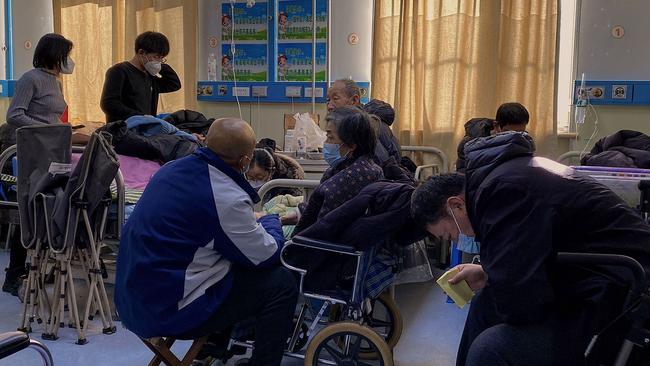
A video report by CNN days before Christmas showed containers full of bodies in yellow storage bags, with more being delivered as the team filmed. Hundreds of cars waited in a queue to deliver more, but were told the overwhelmed facility had no place for cremation.
Some people waiting said the hospitals where their loved ones had died had told them they had no room to store the bodies.
Videos posted on social media show similar queues at funeral homes around the country.
Those facilities are now surrounded by police. Instructions have been issued to staff ordering that “no interviews with journalists are allowed; no disclosure in any kind of the present operation now”. They warn of punishment for any breaches.
Forgetting about Covid
This week, Beijing announced China’s border will open to the world from January 8. Chinese citizens will, for the first time in three years, be allowed to travel outside the country.
Those travelling to the US, Japan and India will need a negative test. Other destinations, including Taiwan, will test Chinese tourists on arrival.
For now many in China are nervous about leaving their apartments. Subway numbers, domestic flights and traffic congestion have plummeted.
Even James Cameron’s anticipated blockbuster Avatar: The Way of Water is struggling to sell tickets. The original Avatar was a massive hit. Sun Linlin was at a screening on Tuesday. She is also one of the rare people to not have caught Covid in China’s capital. “If I really get infected, I will be a true ‘fever fan’ of Avatar! Let me complete my Avatar dream by that,” she joked.




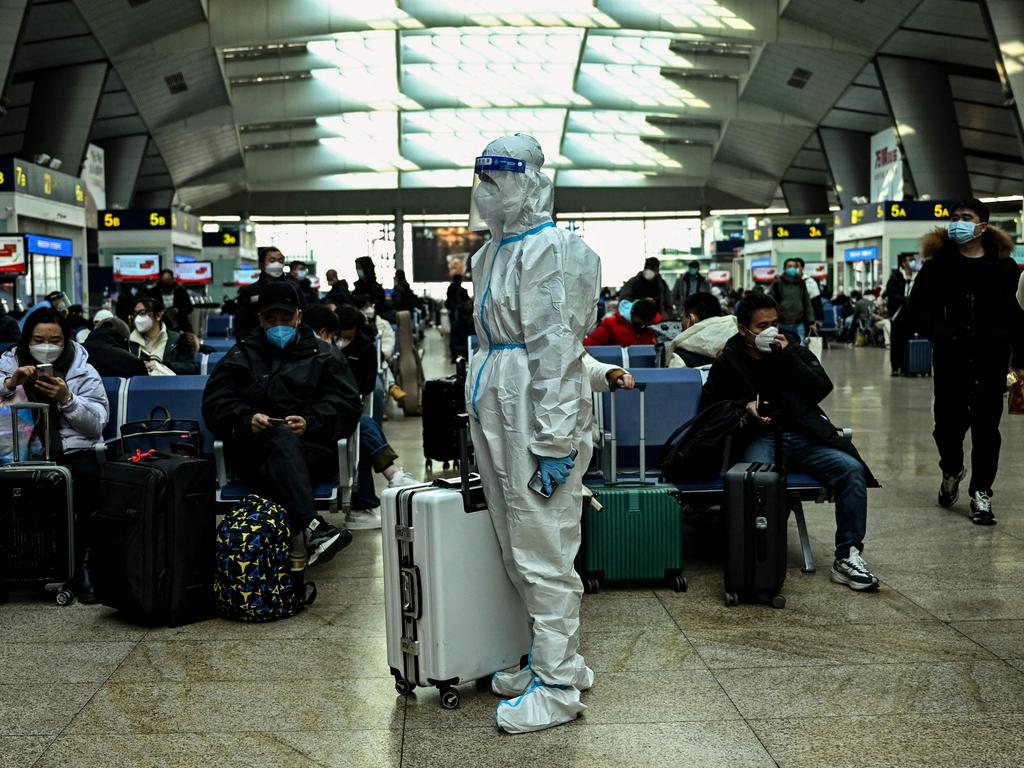
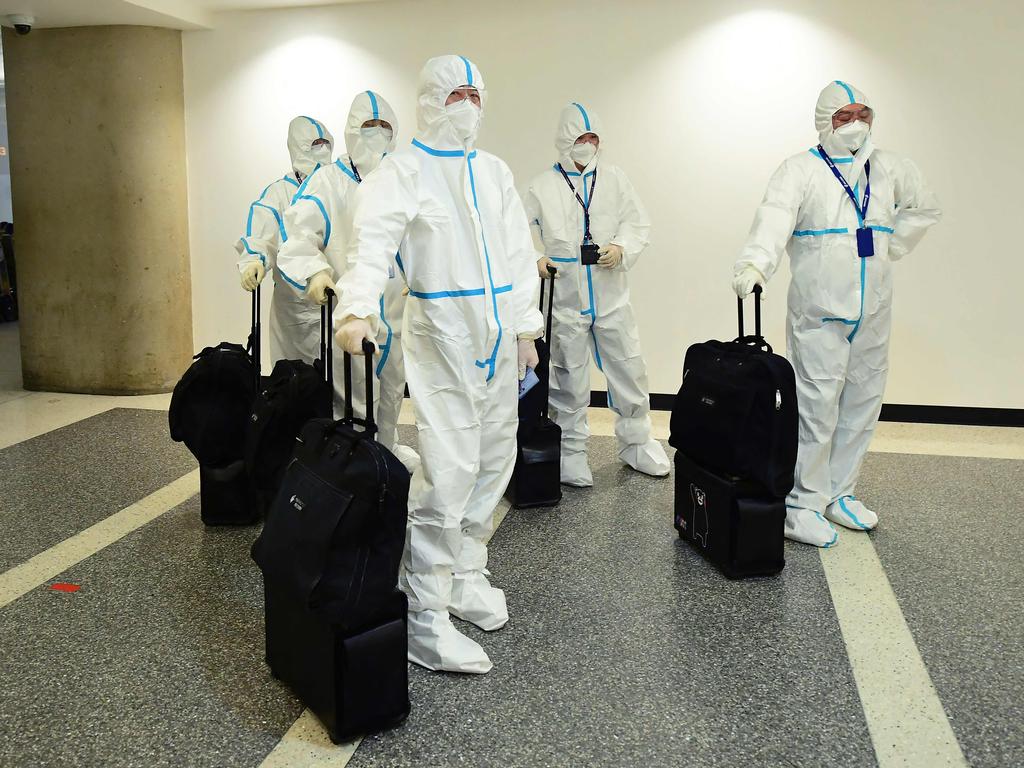
To join the conversation, please log in. Don't have an account? Register
Join the conversation, you are commenting as Logout